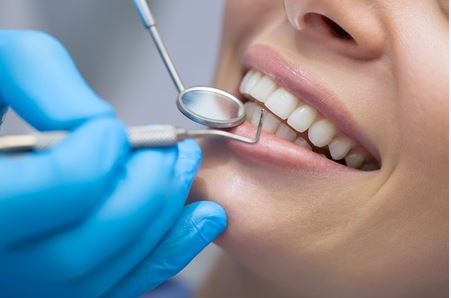Though found naturally in soil, water, foods and several minerals, fluoride — the 17th most abundant element in the Earth’s crust — is also synthesized in laboratories. Synthesized fluoride is commonly added to your drinking water, toothpaste, mouthwashes and various chemical products, and is fantastic for promoting the health of your teeth. Here’s what you need to know about this mineral.
Toothpaste alone doesn’t cut it when it comes to oral health
The best way to protect your teeth from decay is with fluoridated water. Though your toothpaste contains fluoride, this alone is not enough to protect your pearly whites.
Studies conducted in communities that fluoridated water in the years after fluoride toothpastes became common have shown a lower rate of tooth decay than communities without fluoridated water. The U.S. Centers for Disease Control and Prevention (CDC), after looking at all the ways we obtain fluoride, recommended that communities fluoridate water at 0.7 parts per million. Any amount less than this puts our teeth’s health at risk.
 Water authorities add fluoride to your drinking water
Water authorities add fluoride to your drinking water
Proven benefits for public health result from having the optimal level of fluoride in the water – just enough fluoride to protect our teeth and reduce the prevalence of tooth decay in the local population, says the American Academy of Pediatrics.
Scientists discovered in the early 1930s that people brought up in areas with naturally fluoridated water had up to 67 percent fewer cavities compared to those living in areas without fluoridated water, according to Medical News Today. Several studies since that time show that when fluoride is added to people’s drinking water in areas where levels are low, the prevalence tooth decay decreases.
Fluoride contributes to the prevention of tooth decay
Numerous scientific studies and reviews recognize fluoride as an important nutrient for strong, healthy teeth. Fluoride protects from demineralization, which occurs when bacteria in the mouth combines with sugars and produces an acid that erodes tooth enamel and damages teeth.
Fluoride also accumulates in demineralized areas, or areas where teeth are already damaged by acid, and begins to strengthen the enamel in a process called remineralization.
Fluoride both prevents cavities and makes teeth stronger, contributing to optimal overall oral health.
Both adults and children need fluoride
Children need fluoride to protect their permanent teeth as they form and adults need fluoride to protect their teeth from decay.
Fluoride treatment benefits those at higher risk of tooth decay, such as those individuals with snacking habits, poor dental hygiene, little to no access to a dentist, diets high in sugars/carbs and a history of tooth decay.
Fluoride is obtained in two forms: topical and systemic
Topical fluorides strengthen teeth and make them more decay-resistant. These include toothpastes, mouth-rinses and professionally applied fluoride therapies. Systemic fluorides are ingested into the body and become incorporated into forming tooth structures. These fluorides give topical protection because fluoride is present in salvia, which continually bathes teeth. Systemic fluorides include fluoridated water or dietary fluoride supplements like tablets, drops or lozenges.
Even with so many ways to incorporate fluoride, at Genesee Dental we may recommend a home regimen or a professional treatment to bolster the effects of fluoride for your dental health. While fluoride alone isn’t a substitute for good brushing, flossing and cleaning habits, it’s a vital part of keeping an overall healthy mouth and teeth. We offer comprehensive, professional fluoride treatment options as part of our many dental services. Call us to find out more or schedule an appointment online today.
